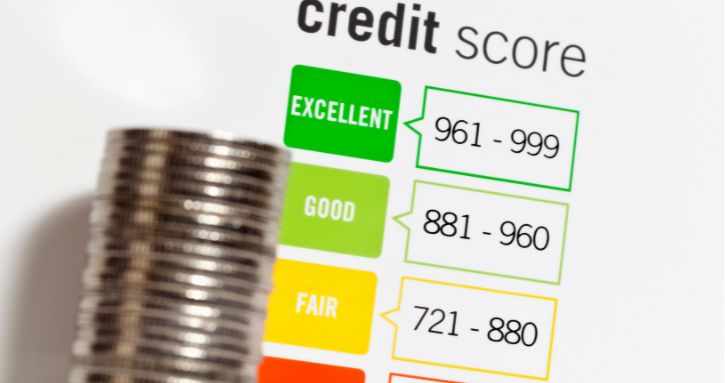What Is a Good Credit Score to Buy a Home?
In the journey of purchasing a home, your credit score serves as a financial report card. It’s not just a number; it’s a significant player in turning your homeownership dream into reality. Imagine it as the key that unlocks insights into your financial health when you’re on the path to becoming a homeowner.
Understanding Credit Scores
Credit scores are like financial compasses guiding your journey through the realms of lending. These numerical representations, often ranging from 300 to 850, serve as a quick snapshot of your credit health. Understanding this range is essential as you embark on the path to deciphering your financial standing.
Factors Shaping Your Credit Score
Your financial reliability is intricately woven into your payment history. The act of consistently paying your bills on time paints a portrait of responsibility and trustworthiness, playing a significant role in shaping your overall credit score.

Consider your available credit as a pie, and credit utilization as the slice you consume. Maintaining this slice at a modest size, ideally below 30%, reflects prudent credit management. It’s a practice that signals to lenders that you are mindful of your spending and debt.
Similar to the aging process of a fine wine, your credit history improves with time. Lenders perceive a more extended credit history as a testament to your financial maturity and reliability, adding positive strokes to your credit profile.
Diversity becomes a powerful ally in your credit journey. The types of credit you use, ranging from credit cards to loans and mortgages, showcase your ability to manage a variety of financial responsibilities. This mix contributes positively to the overall perception of your creditworthiness.
The financial world keeps a watchful eye on your credit activities. Multiple recent credit inquiries may raise concerns, hinting at potential financial strain and leaving an imprint on your credit score. Being mindful of these credit factors and their impacts can pave the way for a healthier credit profile and, ultimately, support your financial goals.
In the vast landscape of the United States, an astonishing 10% of the population finds itself in a unique and often overlooked category – they are the “credit invisible.” As reported by the Consumer Financial Protection Bureau, this segment of the population lacks a credit record, a financial fingerprint that many take for granted. Being credit invisible means these individuals have little to no documented history of managing credit, making it challenging for them to access traditional financial services.
What is Considered a Good Credit Score?
The impact of credit scores on interest rates and loan terms cannot be overstated. A higher credit score often translates to lower interest rates and more favorable loan terms. Those with excellent credit profiles are typically offered the best deals, enjoying the benefits of reduced interest payments over the life of their mortgage. On the contrary, individuals with lower credit scores may face higher interest rates and less favorable loan terms, potentially increasing the overall cost of homeownership.

Moving on to what is considered a good credit score, it’s crucial to grasp the range of credit scores and their corresponding classifications, ranging from poor to fair, good, and excellent. These classifications serve as benchmarks for lenders to assess an applicant’s creditworthiness. When it comes to obtaining a mortgage, specific credit score thresholds come into play.
For conventional loans, which are standard mortgages not insured or guaranteed by the government, a good credit score typically falls within a certain range. Federal Housing Administration (FHA) loans, designed to assist first-time homebuyers, have their own set of credit score requirements. Similarly, Veterans Affairs (VA) loans, tailored for eligible veterans and service members, come with specific credit score thresholds. Understanding these variations in credit score expectations for different loan types is crucial for prospective homebuyers as they navigate the complex landscape of mortgage financing.
Improving Your Credit Score for Home Buying
When gearing up for the journey of home buying, it’s wise to pay attention to the health of your credit score. Boosting your credit score before applying for a mortgage can open doors to more favorable loan terms and interest rates. To get to this proactive path, consider implementing a few key tips. Begin by ensuring timely payments on existing debts, as your payment history significantly influences your credit score. Reducing credit card balances can also positively impact your credit utilization ratio, another crucial factor. Additionally, avoid opening new credit accounts in the months leading up to your mortgage application, as multiple inquiries may raise concerns among lenders.
Equally important is the need to meticulously review your credit report for any errors. Your credit report is the foundation upon which your credit score is built, and inaccuracies can have adverse effects on your borrowing capacity. Regularly checking and correcting errors, such as inaccurately reported late payments or accounts that don’t belong to you, is a vital step in ensuring your credit score accurately reflects your financial history. By taking these proactive measures, you not only enhance your creditworthiness but also position yourself for a smoother and more successful home-buying experience.
Conclusion
So, here’s the encouragement: take control of your financial destiny. Be diligent in your financial habits, consistently working to enhance your creditworthiness. Your proactive efforts today can be the key to realizing your dream of homeownership tomorrow. The power to shape your financial future and secure your ideal home lies in your hands—seize it with confidence and determination.
Resources:




